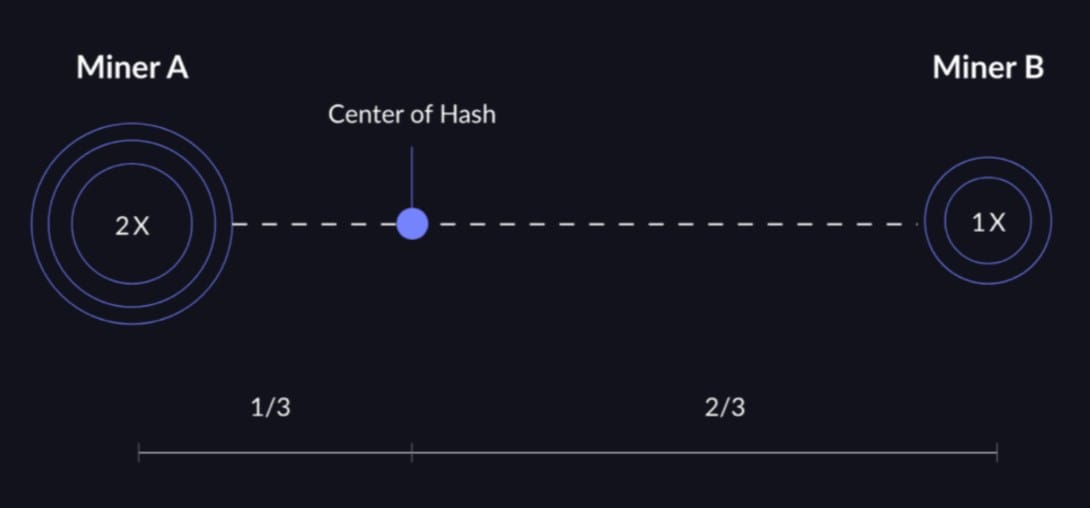Center of Hash: A TFTC Podcast

I'm excited to announce a new project I've been working on with the team at TFTC.io and my good friend Marty Bent: Center of Hash, a podcast under the TFTC umbrella focused on the intersection of bitcoin (money), energy and bitcoin mining. Episode 1 just dropped. Give it a listen to learn more what it's about (and why) or keep reading!
Center of Hash | Episode 1: Marty Bent (Spotify)
Center of Hash | Episode 1: Marty Bent (Apple)
This initiative was (and is) inspired by an often referenced hot-button topic in bitcoin: mining centralization. But beyond a personal interest in advancing discussions that help further mining decentralization, energy (more broadly than just mining) is an aspect of bitcoin from a subject matter perspective that has long piqued my interest, I've been co-organizing the Houston bitcoin meetup for the past four years, which is focused on energy and mining, and there's a strategic overlap with what we are building at Zaprite on the payments side (the mining ecosystem is a logical early adopter of bitcoin payments and a core industry vertical of ours). I also believe bitcoin has a material role to play in expanding access to cheap, reliable power all over the world, not just as a derivative effect of sound money but as a direct result of its flexible, location-agnostic demand for power at scale.

Energy abundance is path dependent on bitcoin and more people should know about it.
Goals for the Podcast - The Why
The goal of the podcast, at the highest level, is to distribute knowledge with an aim to accelerate bitcoin adoption, beyond just bitcoin mining. What's the odds-on best way to help further decentralization in bitcoin? To accelerate knowledge distribution and for adoption to grow by orders of magnitude. Hash rate and demand for bitcoin mining grows as demand for bitcoin grows as an alternative to fiat currencies. But, within the mining ecosystem, there are critical parts of the industry that have either remained centralized (ASICs) or have become increasingly centralized (pools) despite hashrate already having grown by ~180x over the last eight years (2017: 5 EH/s vs. 2025 = 900 EH/s).

Can one podcast change the dynamics? Absolutely not. Economic incentives and the self-interest of direct market participants are really what will dictate change and in this case, further decentralization. Bitcoin only works because of decentralization. If you have ever read anything I've written or heard me speak, I will say (or write) on repeat that bitcoin will be adopted as the global reserve currency if it can credibly enforce its fixed supply. The key word is credibly, and the question is always whether bitcoin is sufficiently decentralized to be immune to any future threat, which can really only be tested when (or once) a threat emerges. Bitcoin's fixed supply and the network being permissionless (and resistant to censorship) go hand in hand. One does not exist without the other, and both depend on decentralization.
Decentralization is a word that has also been trivialized by the crypto industry. But in bitcoin, it is not trivial. Decentralization in bitcoin (at every layer) is a constant focus that is critical to the system’s viability. It’s also advanced with no central coordination by individuals all over the world, with no mandate or clear end state but with one common interest: bitcoin. Bitcoin must be sufficiently decentralized to be resistant to arbitrary change to its rules (e.g. its fixed supply), but it also must be sufficiently decentralized to ensure every valid transaction is validated and that anyone who wants to join the network can on a permissionless basis, both critical to bitcoin’s censorship-resistant nature. If any person or even a single transaction could be censored at the bitcoin protocol level, it would establish that the bitcoin network was not sufficiently decentralized to enforce its own rules, independent of exogenous forces, and if that were true, everything would be at risk including bitcoin’s fixed supply of 21 million.

Energy inputs are naturally distributed throughout the world but bitcoin mining infrastructure is not. Bringing a competitive ASIC (and mining rig) to market is not trivial. Building a viable mining pool is not trivial. Manufacturing mining infrastructure is not trivial. Mining bitcoin profitably is not trivial. But still, mining decentralization and the integrity of bitcoin as a system as a whole is critical to every holder of bitcoin and to every participant within the bitcoin mining ecosystem. All value, whether bitcoin itself (the currency) as well as the long-term value of mining infrastructure and bitcoin-adjacent energy assets, is dependent on decentralization. How key aspects of bitcoin mining decentralize may be non-trivial. But it will occur nonetheless and be dictated by economic incentives and the self-interest of individual participants, rather than altruism.
Audience and Content - Who and What
Realistically though, decentralization is an output, not an input. No one person can make a dent. One person and/or one business at a time becoming interested in bitcoin (and how it can solve problems, both in terms of money and energy) is how bitcoin decentralizes. That's why this podcast and initiative is not just about mining. It is about the convergence of bitcoin (i.e. money), energy and mining. The subjects we cover should appeal to bitcoiners broadly, current market participants in the mining ecosystem, professionals in traditional energy and power markets that likely know little about bitcoin, as well as public stakeholders in grid operations and energy systems.

We will cover everything from the unique nature of bitcoin's demand for power, why the demand exists in the first place, how it complements and helps balance the demand for power within local markets and how bitcoin can help solve energy problems upstream, midstream and downstream.

We'll discuss energy fundamentals by fuel source, power generation and grid operations, bitcoin fundamentals in relation to energy, a wide range of bitcoin mining strategies including individual site case studies, bitcoin mining economics and the key drivers of mining incentives, bitcoin mining pools, mining hardware and infrastructure, bitcoin mining protocols and of course, how bitcoin (the money) ties it all together as we bring discussions concerning network decentralization to the forefront.

The energy rabbit hole is just as deep as the bitcoin rabbit hole. I'm not an expert in energy, power or mining. But I have a requisite knowledge base to ask good questions, to bridge the gaps to bitcoin as well as a network of friends and contacts, who are experts in all the relevant fields, that will help accelerate the distribution of knowledge and create value for the TFTC audience.
Center of Hash - The Name
The name for the podcast comes from an idea initially put forward by my friend, former colleague and co-founder of Unchained, Dhruv Bansal. In his Bitcoin Astronomy series, Dhruv defined the Center of Hash as the average spatial location of a blockchain's miners weighted by their hashrate. He was exploring the question of whether bitcoin could (or would) be used and mined in space, with the distance from the center of hash on earth as well as the time it would take to propagate bitcoin blocks to other planets being a key determinant. Years later, @stacyherbert colloquially referred to Texas as the center of hash at a meetup at The Bitcoin Commons, now Bitcoin Park Austin.
We'll be focused on earth but Dhruv will be an early guest (and I'm sure we'll get a little cosmic). Texas is the de facto center of hash, the TFTC flagship studio is based in Austin at Bitcoin Park and the Texas market is the epicenter for energy and power innovation. But at the same time, bitcoin and energy are global, and we will be covering everything that emanates from the center that is bitcoin and its hash function. All in, I had some bad ideas that Marty didn't like and Center of Hash was the most fitting as the nexus of the subject matter. It stuck!
If you have ideas or feedback, please share them. If you would like to pitch a show or come on, DMs are open. All shows will be recorded in person at the TFTC Studio in Austin. Marty is naturally the first guest. The script has been flipped. We'll start wide and then get deep. Bitcoin is going to revolutionize both money and energy, as first and second order derivatives. Then the entire world. Hope you enjoy the show!
Center of Hash | Episode 1: Marty Bent (Spotify)
Center of Hash | Episode 1: Marty Bent (Apple)
Best, Parker


